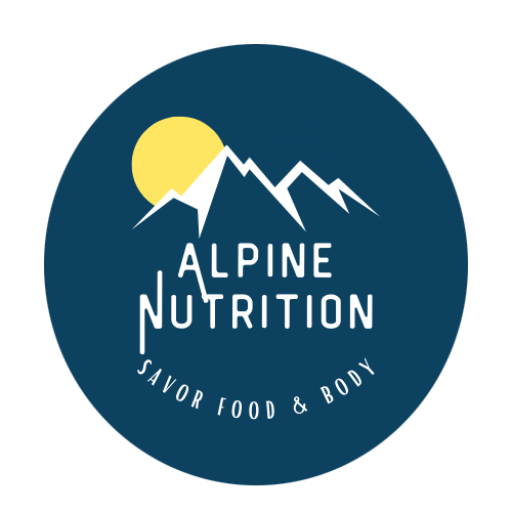As the weather warms up, so do the mixed messages of diet culture. We look forward to getting outside, spending time with friends, and eating delicious food. But, there’s an elephant in the room. Shouldn’t you do something (everything) to get your body summer-ready? If this weekend left you feeling off track with your health goals, here’s how to deal with emotional eating – or at least catch yourself in the act.
When you catch yourself with your hand at the bottom of a bag of chips or cookies, pause, and ask yourself. Are you hungry? Or did the food just sound good?

Physical hunger is an interceptive awareness cue just like needing to pee. It’s innate, you can’t deny it, at least for long. But unlike needing to pee, you can ignore your hunger signals for a while without the embarrassing incident of wet underwear.
Many people walk around hungry and get praised for it, because “they have amazing willpower.” No one will say you have amazing willpower if you don’t go pee and wet yourself. So why say that about not eating? A soapbox for another time. The point is, your body says you’re hungry for a reason. Honor it.
The hunger-fullness spectrum is the tool I use to help women over 40 get back in touch with their interoceptive awareness of hunger.
If you wait to eat until you’re ravenously hungry, for whatever reason, your primal brain kicks in urging you to eat whatever is in site – as much as in sight.
Once you’re starving or hangry, your brain won’t be able to lead with satisfaction to make food choices. It doesn’t want to mindfully pause mid-way through your meal and check if you’re getting full. Your primal brain just wants all the food, NOW. When this happens, you quickly swing over to uncomfortable fullness.
What about emotional eating? Is it bad? How can you avoid emotional eating?
Emotional eating gets a bad rap. But honestly, sometimes it’s the only emotion coping tool you have. The point isn’t to never emotionally eat. Some emotional eating is a good thing like celebrating the start of summer with a burger on a real bun and ice cream. However, there’s a difference between physical hunger and emotional hunger or appetite. You can have an appetite for food without being hungry.

There is a profound difference between physical hunger and appetite.
As I mentioned above, physical hunger is tied to interoception, like needing to pee. Appetite is the desire to eat because food smells, looks, or sounds good. You might have a strong appetite if you’re physically hungry. But the two don’t always exist together. Here’s an example.
You have your typical satisfying breakfast. You head out the door to run errands, including a dreaded dentist appointment. The dentist’s office is a few doors down from an artisan bakery. When you come out of the appointment, your teeth feel like they just had a Swedish massage and the taste of vinyl gloves lingers in your mouth. You smell the fresh baked goods as you walk to your car.
You’re not physically hungry, but the smell of baked goods lures you into the bakery. You have an appetite for something sweet, bready, and buttery. You honor your appetite because freshly baked pastries are delicious, but also because you deserve a reward for surviving the dentist appointment. Food as a reward is a form of emotional eating.
If this experience sounds familiar and you’re judging yourself for it. Stop. Welcome to being human! Remember the point isn’t to never emotionally eat or never honor your appetite for fresh baked goods. The point is to know when you’re doing it and why.
Your appetite for food can be ignited by your senses – smell, sight, sound. It can also be triggered by an unmet appetite for connection, change or variety, adventure, validation, the need to be seen or heard, or nostalgic memories.
If you find yourself spoon-deep in a pint of Ben and Jerry’s after a hard day just like you did in college, this can be a sign of limited capacity (burnout) and the need for rest or connection.
The problem is, Ben and Jerry aren’t going to fix your limited capacity or come over and hang out to hear about your day. Their ice cream will be a delicious distraction, but it won’t fulfill your appetite for more support.
Here’s where the connection between physical hunger and appetite gets interesting (messy).
It’s been a crazy busy day. You don’t honor your physical hunger until you’re ravenous and your primal brain kicks – pushing you to eat whatever’s in sight. You eat all the food and suddenly feel uncomfortable fullness. This triggers judgey thoughts and guilt about overeating. Now you’re in an emotionally vulnerable place. You say fuckit and grab some dessert.
This ignites negative body image and body shame. You tell yourself you can’t be trusted with food, especially dessert. With feelings of guilt, you make a promise to never buy Ben and Jerry’s ice cream again. You vow to spend more time at the gym tomorrow and get back to tracking your food so you can be more accountable. What happens?
You hit the gym hard. Eat barely enough to not be hungry anymore, and end up ravenously hungry 2 hours later. Your primal brain kicks in again and here you are on the ravenous-hunger-overeating cycle. How do you get out of this vicious cycle?
Become aware of when you restrict food or get ravenously hungry. Notice how your body will compensate by encouraging you to eat more food quickly. It’s not you’re fault. You’re not broken and neither is your willpower. You’re human trying undiet your life and mindset. Be patient with yourself as you learn the difference between physical hunger and emotional hunger or appetite.
Learn more about how emotional eating affects your body image and health goals inside the Midlife Feast Community!




